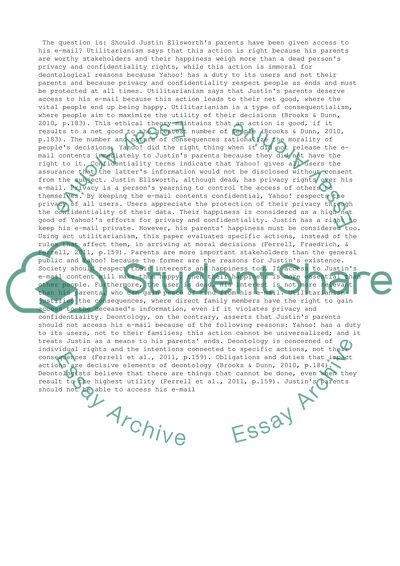CASE 2 ETHICS - Informational Privacy Essay Example | Topics and Well Written Essays - 750 words. Retrieved from https://studentshare.org/business/1466899-case
CASE 2 ETHICS - Informational Privacy Essay Example | Topics and Well Written Essays - 750 Words. https://studentshare.org/business/1466899-case.


